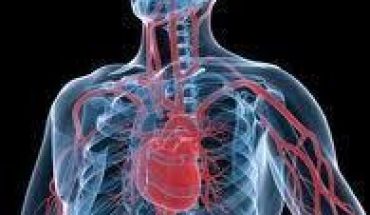What is Pancreatitis?
Pancreatitis refers to the irritation of the pancreas. The pancreas is located behind the abdominal area, within close proximity to the duodenum. The pancreas’ main function is to discharge digestive enzymes into the duodenum, by means of the pancreatic duct. Pancreatic enzymes combine with bile, which is produced by the liver. This liquid is stored in the gallbladder, and is later used to assist in the digestion of food. The pancreas is also responsible for the discharge of insulin and glucagon into the capillaries. Insulin and glucagon aid in the regulation of glucose, that is taken from food to form energy.
Usually, the digestive enzymes that are discharged from the pancreas are not activated until they are in the small intestines. In cases where the pancreas becomes irritated, the enzymes that it contains will start to attack the tissues, that are responsible for their production; this will result in damages to the tissue. Pancreatitis can occur suddenly, or it can be prolonged, however both occurrences are severe as they may cause further complications. Most complications results in continuous bleeding, infection, and permanent damage to tissues. Pancreatitis occurs in both men, and women, but it is more common in men.
Pancreatitis can be classified as acute or chronic. In acute pancreatitis, the pancreas is irritated suddenly, in a short space of time. Most acute pancreatitis cases report gallstone or alcohol consumption as their cause. In other instances, the reported causes are due to the use of certain medications, metabolism problems, trauma to the pancreas, infection in the pancreas, and surgery. There are however cases where the cause is unknown.
The impact of acute pancreatitis can be so severe, that it also causes damage to the heart, lungs, and kidneys. However, most persons that have been affected by acute pancreatitis, have recovered following treatment. Chronic pancreatitis on the other hand, commonly takes place after an acute pancreatitis has occurred. This is due to the continuous irritation of the pancreas. Chronic pancreatitis, in most cases, results from continuous alcohol consumption. A minority of the cases are due to metabolism problems. In rare instances, chronic pancreatitis may be hereditary. Damage to the pancreas resulting from the continuous consumption of alcohol, may not activate indicators, until years after the damage has taken place. This may cause the affected individual to lose their pancreatic function, which later results in abnormalities in blood sugar, and digestion.
Symptoms of pancreatitis
The symptoms of pancreatitis will depend on the type of pancreatitis an individual is affected with, whether acute or chronic. The symptoms of pancreatitis may also vary from individual to individual. Pain is a common symptom of acute pancreatitis, the pain usually occurs suddenly, but it has the ability to build up slowly. The pain is felt in the abdomen; it can last for days, and usually intensifies after having a meal or when the individual is lying flat on their back. Other symptoms may include, nausea, fever, fast and unsteady heartbeat due to dehydration, or vomiting, as well as dizziness, and headaches.
An individual with acute pancreatitis hardly experiences pain. In cases where pain is felt, it is usually continuous, and incapacitating. In most cases the pain stops when the condition gets worse, and this is not a good sign, because it means that the pancreas is no longer working. Other symptoms may include the body’s inability to create insulin, which results in diabetes, indigestion which causes weight loss, and anemia resulting from low blood count.





